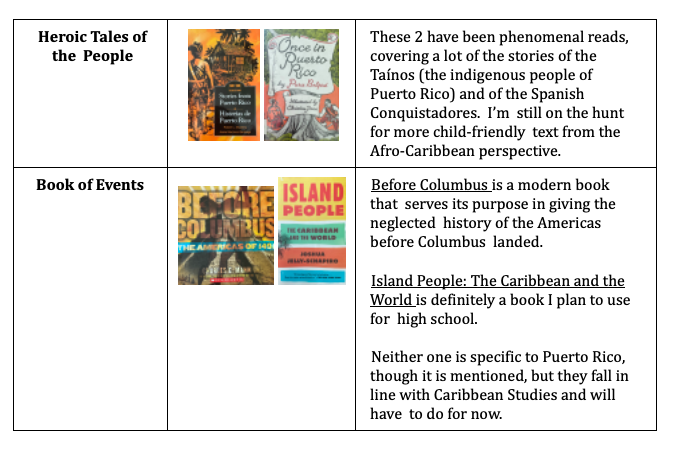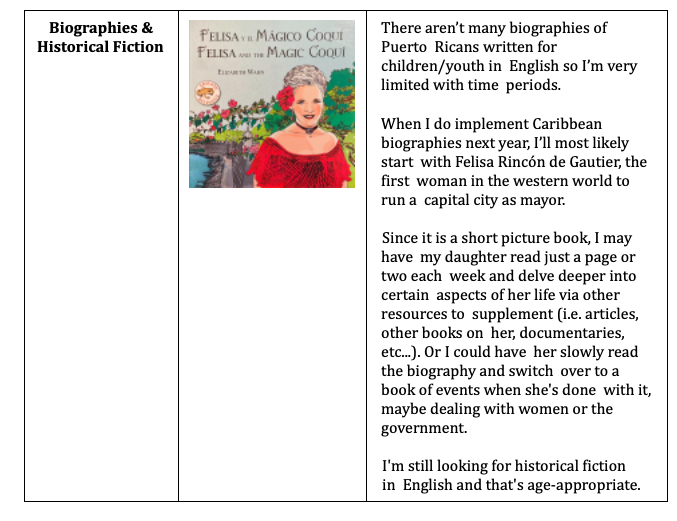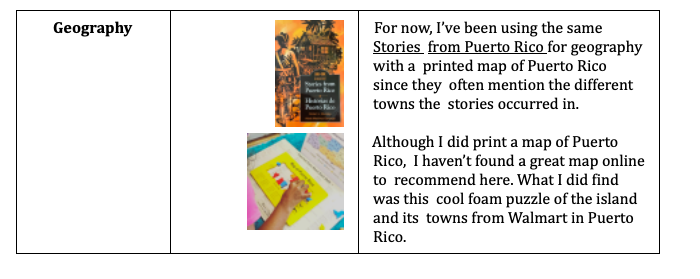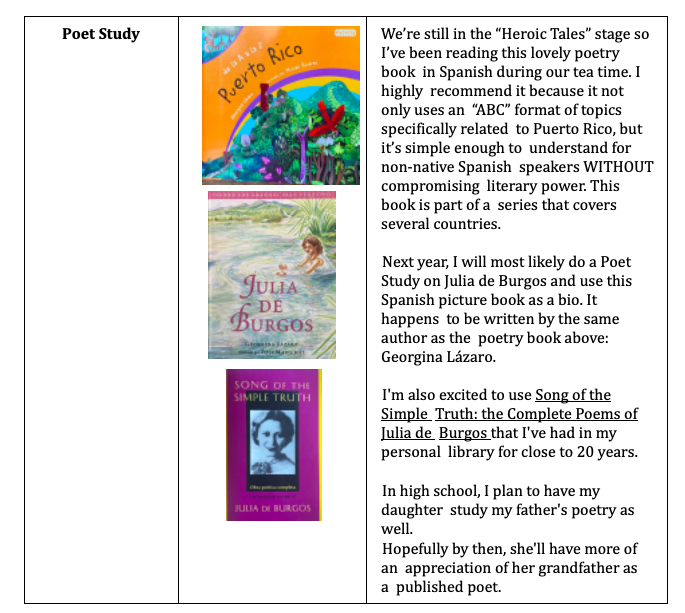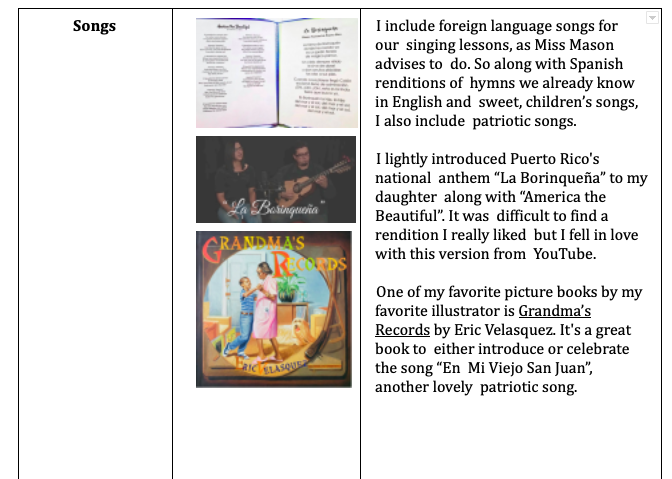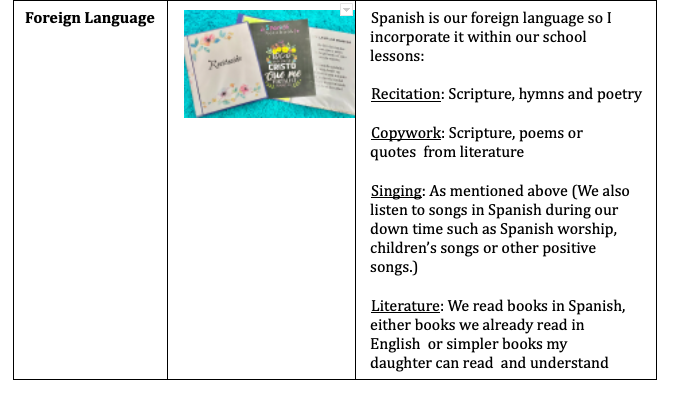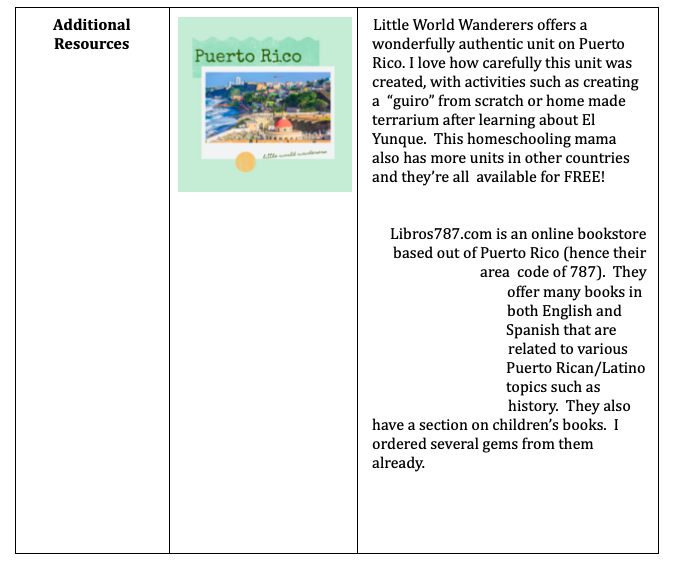Heritage History for Your Homeschool by Erika Alicea
“How are you implementing your Heritage History?” is probably the question I get asked the most. I know that the majority of the time this question pops up, it’s because the mom asking really wants to get practical examples on how she can implement the heritage of her family in her homeschool.
The following post will include examples and resources I use to implement our Heritage History, but please keep in mind that our homes are different with unique family needs. I also use Charlotte Mason’s method of teaching history. Why?
Well, because the freedom to individualize my student’s instruction according to the Holy Spirit’s leading is the beauty of a Charlotte Mason education. This includes using her methods to teach a Heritage History in my homeschool.
She’s also famous for using “living books” which are simply quality, narrative writing that bring a subject to life. And quite frankly, there’s no better way to bring history to life than reading quality literature about it.
Now, some people choose to celebrate their heritage outside of school in their everyday life. Others may do so during their afternoon free time, like over a cup of tea.
Our family felt led to go in a different direction. Our Heritage History is just as important as our American one. It also happens to be a history intertwined with
American History, both past and present. As a result, for our homeschool, we’re focusing on Caribbean History with a concentration on Puerto Rico.
Regardless of how you’re implementing the Heritage History of your family, I pray the following breakdown aids you and inspires you in implementing some of your culture in your home instruction.
Heroic Tales of the People
For the beginning of any history stream, Miss Mason starts with a gentle approach with the stories and tales of the people. (If you’ve never heard of a history stream, it basically describes when your student simultaneously learns about the history of different countries/time periods within the school year. You add a stream to your school year, which you study simultaneously with your nation’s history.)
For many people of diverse cultures, there isn’t enough documentation so either there’s little written history or their history is documented in the original language of the land that neither they nor their children understand.
But what most countries have is what Miss Mason knew very well, which are the folktales of that land. The oral traditions passed down from generation to generation in story form give the history of their people, how they lived, their beliefs, even of the times and how the country was in terms of landscape. Folktales are a window into the past.
Book of Events
In addition, Miss Mason encourages the use of a book of historical events told in chronological order. It should be a living book that tells the story in narrative form and not a textbook with dry facts.
Biographies & Historical Fiction
Your student reading a living book about the life of one single person allows them to know this person so intimately and in turn, learn about the history of their day in a more meaningful and enjoyable way.
Historical fiction, when carefully selected, can also help bring a time period to life and give a student a similar experience as that of a biography book.
If no book of historical events can be found, then biographies can be a good substitute because they often include events in narrative form that is at their level.
Align the Heritage History with Native Country
After a year’s study of heroic tales, you can try to align your heritage history with your native country or the country you’re currently living in. For example, if you’re studying the 1800’s in your native country, then pair it up with your heritage history. It simply helps the child see the connections between the countries they’re studying.
If you cannot find a book from the same historical period, then you can choose a similar era or simply go with whatever you can find. Something is better than nothing.
Modern, Living History Books
It’s very common to use older books for quality purposes. But what if there are no older books that documented the history of your country of heritage? Or what if the history wasn’t accurately documented and only told from one perspective?
That’s when modern books can fill in the gap. Finding well-written, modern books that give narrative accounts of history that wasn’t told before is an amazing resource. You can read more about Modern, Multicultural books using Miss Mason’s guidelines here.
Implementing a Schedule
We do our Heritage History only once a week so it can make it difficult to include a book of events, biographies and historical fiction. (We’re currently doing a year of heroic tales.)
One way to schedule your Heritage History can be to alternate between a book of events and a biography every term. Another option can be to read a book of events for a few weeks. If there’s someone from the book of events you and your student would like to focus on or if you already have a person in mind to study, then a biography can be on that person for the next few weeks.
Historical fiction is usually read during free time so there’s more flexibility in when and where you want to implement it in your schedule. (Audiobooks really come in handy when we’re on the road and during lunch.)
Other Areas of Study
“We cannot live sanely unless we know that other peoples are as we are with a difference, that their history is as ours, with a difference, that they too have been represented by their poets and their artists, that they too have their literature and their national life.” (Charlotte Mason, Vol 6)
Miss Mason’s very global mentality had her students study neighboring nations and then the rest of the world through history, geography and foreign language lessons. In essence, history is not an isolated subject. It is organically connected with other areas of study.
Hence, you can include your heritage within subjects such as:
• Geography
• Artist Study
• Composer Study
• Poet Study
• Foreign Language
• Singing
• Dancing
• Literature (including school books, free reads and what you read for tea time or whatever you call the special time together. I love how a mom told me she was going to rename tea time to “café con leche” time with her students in their Cuban home.)
Whether you celebrate your Heritage History during the school day or not, there are multiple opportunities to teach your students to connect with their culture.
Resources I’ve found for Our Heritage Studies
I can’t say enough about the freedom Miss Mason’s methods has given me to include our Latino heritage in our studies. She’s basically given me a blueprint to follow and now it’s up to me to build my own Heritage History curriculum.
Although our homes are uniquely different, I share some of my resources below as practical examples on how I implement what I understand from Miss Mason’s volumes. Please keep in mind that this is a work in progress so it may be edited and revised periodically.
La Borinqueña: Song referenced in the table above
Libros787
I’m still working on Puerto Rican/Caribbean Artist Study and Composer Study.
I just listed a few resources above as I collect as many books as I can. The “curriculum” I’m creating for our Heritage History instruction is gradually being developed as we go, and though not an easy feat, this quote from Miss Mason keeps me excited:
“Once Intellect admits us into the realms of History, we live in a great and stirring world, full of entertainment and sometimes of regret ; and at last we begin to understand that we, too, are making History, and that we are all part of the whole…” (Charlotte Mason, Vol.4, p.37)
Yes, Miss Mason! “We too, are making History” and “we are all part of the whole”. That includes this small Puerto Rican family in the Bronx!
And that includes YOU too, as well as your beautiful family, wherever you’re from and wherever you are!
**I had the pleasure of connecting with Erika on instagram (@cmcityliving) in October while writing my unit on Puerto Rico. Erika is Puerto Rican and after answering all my questions, I asked if she’d be up to chat “in person” via zoom. She graciously agreed and after 2 hours of speaking, she had shared so much wisdom, insight, and stories with me. It was an honor to have her influence on the Puerto Rican unit and I’m so grateful she’s written this blog post.
Erika is a homeschooling mom to her 11 year old daughter. She shares her family, homeschooling, and Charlotte Mason wisdom on her instagram and cohosts the podcast Charlotte Mason for All.


